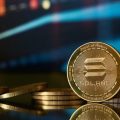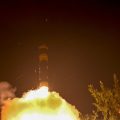A University of South Dakota professor, Phillip Michael Hook, found himself at the center of a legal battle after posting critical comments about conservative activist Charlie Kirk on social media, the same day Kirk was shot. This led to Hook being placed on administrative leave, a decision that sparked significant controversy.
However, a federal court intervened on Wednesday, temporarily reinstating Professor Hook. This temporary reinstatement marks a significant turning point in the case, highlighting the complexities of free speech within the academic environment and the potential legal ramifications of actions taken by universities following controversial social media posts. The court’s decision suggests a recognition of the potential infringement on academic freedom, a principle often central to university life and the pursuit of knowledge.
The incident underscores the ongoing debate surrounding the boundaries of free speech, particularly in the context of social media and its impact on professional life. The legal battle is far from over, and the outcome will likely have broader implications for universities and professors nationwide, influencing how institutions handle similar situations in the future. The case raises questions about the balance between protecting academic freedom and maintaining a respectful environment within educational settings. Whether the temporary reinstatement will lead to a full reversal of the administrative leave remains to be seen, but the legal challenge itself will undoubtedly set a precedent for future cases involving similar circumstances.
The incident also highlights the need for clear guidelines and policies regarding social media use for university employees. Universities may need to re-evaluate their existing policies to address the challenges posed by social media in the digital age. This situation serves as a reminder of the importance of carefully considering the potential consequences before posting online, especially for individuals in positions of public visibility. The ongoing legal proceedings will be closely watched by academics, legal professionals, and the public alike, as the outcome will shape the discourse surrounding free speech and academic freedom in the years to come.










